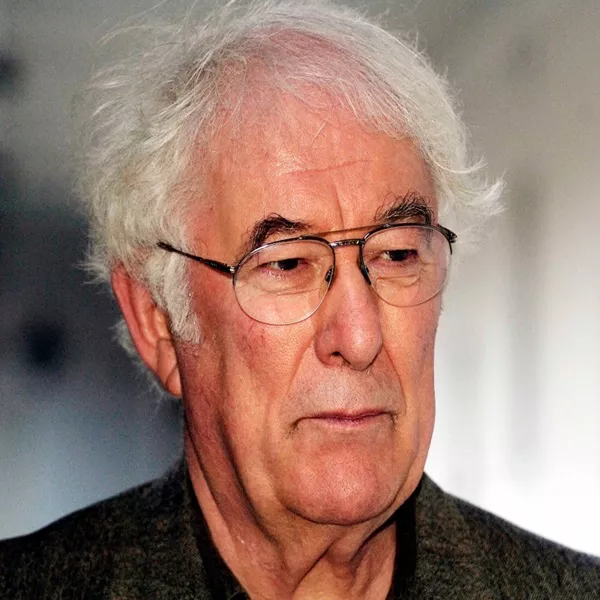
Seamus Heaney (1939–2013) was an Irish poet, playwright, and translator whose works bridged the gap between local experience and universal themes. Known for his lyrical mastery and profound sense of place, Heaney explored themes of identity, history, and the natural world. Awarded the Nobel Prize in Literature in 1995, he remains one of the most celebrated poets of the 20th century.
Seamus Heaney Biography
Seamus Heaney Poems
Seamus Heaney’s poetry spans themes of nature, history, and human experience, capturing the essence of Irish life while resonating with universal truths.
1. “Digging” (Death of a Naturalist, 1966)
This iconic poem reflects Heaney’s connection to his rural roots and the legacy of manual labor, contrasting it with his craft as a poet.
2. “Blackberry-Picking” (Death of a Naturalist, 1966)
A vivid depiction of childhood and the fleeting nature of joy, this poem showcases Heaney’s mastery of sensory imagery.
3. “Mid-Term Break” (Death of a Naturalist, 1966)
This poignant poem recounts the tragic death of Heaney’s younger brother, capturing the grief and confusion of loss.
4. “The Tollund Man” (Wintering Out, 1972)
Drawing on the preserved body of an Iron Age man, this poem explores themes of violence and sacrifice, linking ancient history to modern conflicts.
5. “Bogland” (Door into the Dark, 1969)
A meditation on Ireland’s landscape and its layers of history, this poem symbolizes the interconnectedness of place and memory.
6. “Casualty” (Field Work, 1979)
This elegy for a fisherman killed during The Troubles exemplifies Heaney’s ability to address political violence with empathy and nuance.
7. “The Forge” (Door into the Dark, 1969)
A metaphor for creativity, this poem compares a blacksmith’s forge to the poet’s craft, blending physical labor with artistic inspiration.
8. “Personal Helicon” (Death of a Naturalist, 1966)
Celebrating the power of imagination and reflection, this poem evokes the wells of Heaney’s childhood as sources of poetic insight.
9. “Clearances” (The Haw Lantern, 1987)
A series of sonnets reflecting on the death of Heaney’s mother, this work explores themes of love, memory, and familial bonds.
10. “Punishment” (North, 1975)
This powerful poem examines moral ambiguity, drawing parallels between ancient punishments and modern political violence.
Seamus Heaney Quotes
1.“The way we are living, timorous or bold, will have been our life.”
2.“If you have the words, there’s always a chance that you’ll find the way.”
3.“Poetry is language in orbit.”
4.“Memory has its own story to tell.”
5.“History says, don’t hope on this side of the grave. But then, once in a lifetime, the longed-for tidal wave of justice can rise up.”
6.“Even if the hopes you started out with are dashed, hope has to be maintained.”
7.“Walk on air against your better judgment.”
8.“I rhyme to see myself, to set the darkness echoing.”
9.“It is difficult at times to repress the thought that history is about as instructive as an abattoir.”
10.“The world looks strange to people who are strangers to it.”
Seamus Heaney Facts
1.Heaney was the first of his family to attend university, setting a precedent for intellectual achievement.
2.His first poetry collection, Death of a Naturalist, sold out its first printing within weeks.
3.Heaney described himself as “Irish, but with a foot in both camps,” balancing his Northern Irish and broader cultural identities.
4.He declined the position of UK Poet Laureate in 1984, preferring to focus on his Irish heritage.
5.His translation of Beowulf won the Whitbread Book of the Year Award in 1999.
6.Heaney was a close friend of fellow poet Robert Lowell, who described him as “the most important Irish poet since Yeats.”
7.He taught at Harvard University for over a decade and was also a visiting professor at Oxford University.
8.Heaney’s Nobel Prize acceptance speech emphasized the power of poetry to “redress imbalances in the world.”
9.A line from his poem “The Cure at Troy” was quoted by U.S. President Joe Biden during his 2020 campaign.
10.Heaney’s final words, sent via text message to his wife, were “Noli timere” (Latin for “Do not be afraid”).
